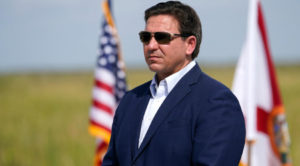The New York City Council is currently embroiled in a controversial plan to remove statues and paintings of historical figures, including the iconic figure of George Washington, from public spaces. This initiative has sparked outrage among conservatives who see it as part of a broader effort to rewrite the nation’s history and discredit its founding fathers. The removal of a statue of Thomas Jefferson, the author of the Declaration of Independence, due to his ownership of slaves, has already stoked tensions in the city.
George Washington, the Revolutionary War hero and the first president of the United States, has a significant presence in New York City, with numerous statues, streets, parks, and even a bridge bearing his name. This move to target historical figures instrumental to the nation’s founding has raised questions about the motivations behind such actions.
Some conservatives argue that this push to remove statues aligns with one of the 45 goals of communism outlined in 1963, which includes discrediting the American founding fathers as selfish aristocrats and racists. They see it as an attempt by the radical left to reshape the narrative of American history, portraying the nation as inherently evil.
New York City Councilwoman Joann Ariola, a Republican from Queens, has expressed her opposition to these efforts, emphasizing that these historical figures made significant contributions to the country’s establishment and should be celebrated rather than erased from memory. She believes that the radical left is attempting to undermine the nation’s history.
In response to these removal plans, Brookhaven, a town on Long Island, has offered to take the statues and bear the cost of the transfer. Town Supervisor Edward Romaine has stated that they value these statues for their historical significance and their contributions to the nation’s history.
The removal of statues in New York City, including that of George Washington, has become emblematic of the ongoing debate about how to commemorate the nation’s history and the role of its founding fathers. Many conservatives view these actions as part of a broader ideological struggle over the narrative of American exceptionalism.





